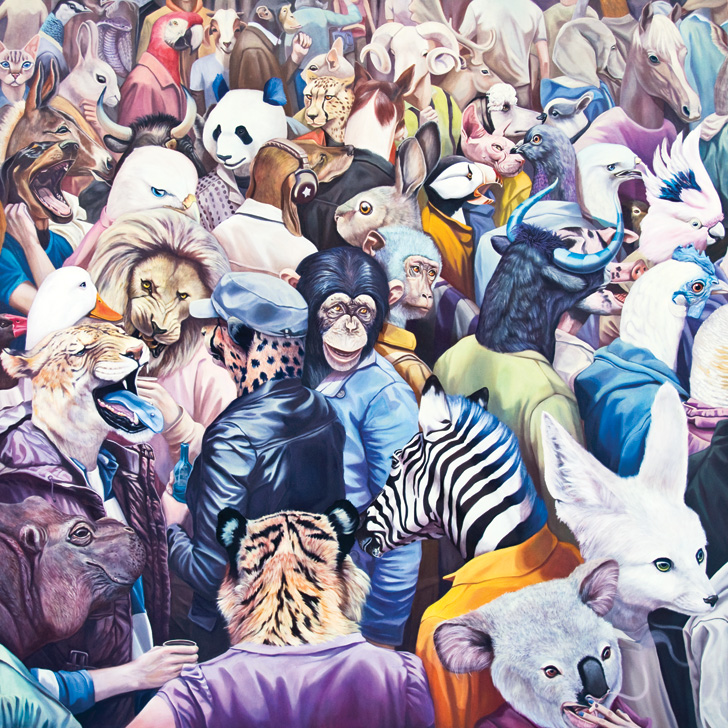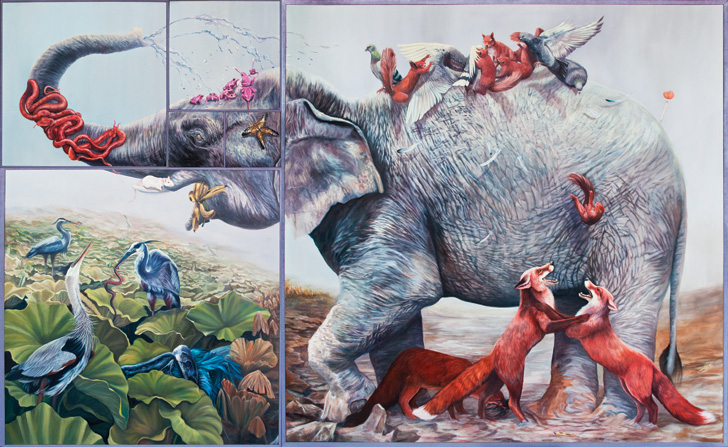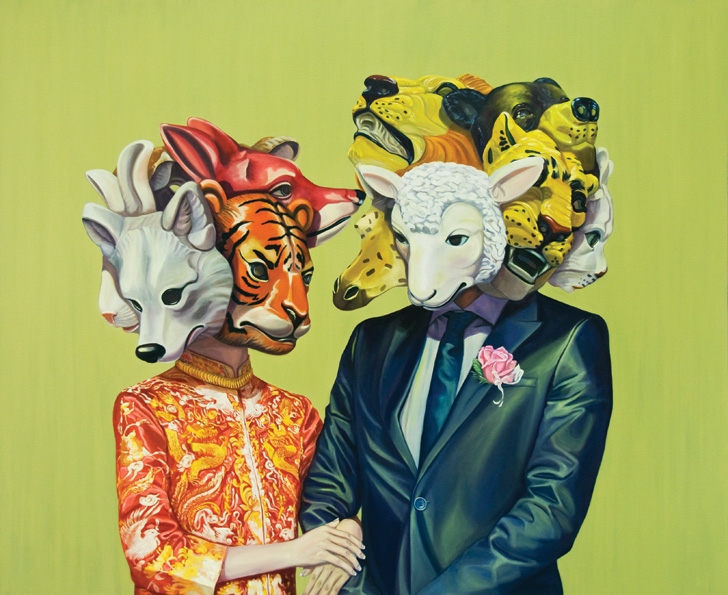The Singaporean artist discusses why Art Stage Singapore will make him feel naked and how his work is a reminder to humans to tone down our hubris
David Chan says that he became an artist by accident. Having never taken an art lesson at school, where he in fact excelled in the sciences, he decided to “jump off the bandwagon”, as he puts it, and took the rather bold decision to enrol at LaSalle College of the Arts in his native Singapore. After numerous academic twists and turns, Chan eventually landed in fine arts, where he fell in love with painting and sculpture.

Despite numerous awards and an acclaimed first solo exhibition in 2004, it wasn’t until six years later, when he moved into his third studio, a vast factory unit in Serangoon, Singapore, that he says he finally realised: “Hey, this is getting serious. I think I’m really going to be an artist.”
Five years after the realisation that you were ‘really going to be an artist’, you are exhibiting at Art Stage Singapore for the 5th time. Are you looking forward to the event?
It’s a hard question. Yes, because it’s a major arts event in Singapore. No, because I’m always nervous about showing new work; somehow it feels very naked.
As a Singaporean yourself, is there any extra pride in showing at Art Stage Singapore, one of the region’s biggest arts events?
I am naturally happy, of course, although the Southeast Asian arts crowd is very small, and as a result you end up bumping into the same group of people regardless of which country you’re in.

Animals are a recurring theme in much of your work. Why is that?
During the early years of art college I had an epiphany: use animals to replace humans in narratives that were rather dicey or subjective. This third party approach had several merits, [including the fact that] it brought the viewer closer and lowered their defences. As a result, the visuals would somehow become more palatable and open for discussion.
The animals chosen are often familiar creatures that already shoulder their fair share of literary abuse over the ages: lazy pig, big bad wolf, loyal dog et cetera. I would sometimes play to the usual mythos of these archetypes or once in a while intentionally go against it for effect.
You’re famed for your human-animal hybrids in particular. What is your inspiration with those works?
Consider this: we are genetically different from apes by a meagre 5%. Apart from some fancy gadgets we behave instinctively like animals, [feeling] the need to mate, to gain power and to socialise. I guess I like to remind everyone, including myself, to deflate our hubris once in a while.

Have you ever thought about switching things up and putting human heads on animal bodies?
Having animal heads on human bodies helps suggest that we are by default still animals. To have it the other way around would suggest vice versa, though I did touch on this topic as well, to say that animals are at times more civilised than humans.
The use of human faces usually opens a fresh can of worms. In the consideration of facial aesthetics, we become very judgemental based on gender and race.
What do you think animals can teach humans?
Common sense and humility.

You’re obviously very interested in human behaviour. What’s the trait in people that you dislike the most?
Self-indulgent arrogance.
If I can make a huge assumption based solely on your work, you seem to be misanthropic yet funny at the same time…
That would be accurate, and I’m pleasantly surprised you have that impression. For as long as I can remember, I have always been very cynical and sceptical about life at large. However, in the same breath, that makes me dissatisfied with simple answers, and I’m constantly curious about the meaning of life, the psychology of the mind, the constitution of human behaviours and our reactions to new frontiers of science.
In many cases the use of dark humour is a lesson to myself as well as to like-minded viewers that there is often more than meets the eye. Can you see beyond the simplistic narrative and read the subtext?
Art Seasons Gallery will be presenting David Chan’s work at Art Stage Singapore 2016, which runs from January 21-24 at Marina Bay Sands
Keep reading:
“Alley Cat” – Behind the scenes in downtown Ho Chi Minh City, Tuýp Pho No, a young artist-entrepreneur is subverting tradition in the one-party state

